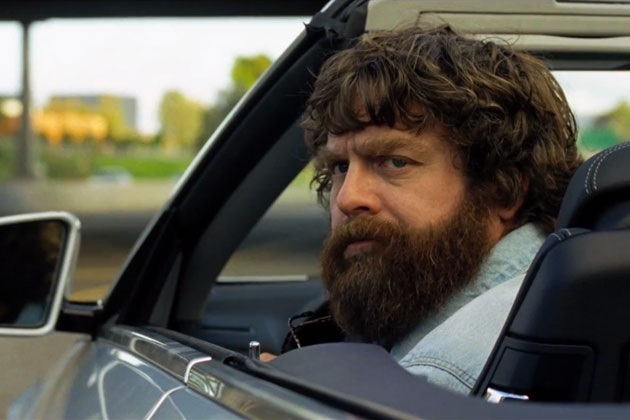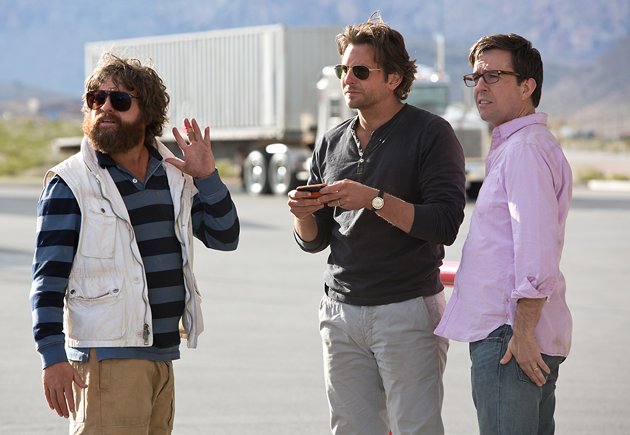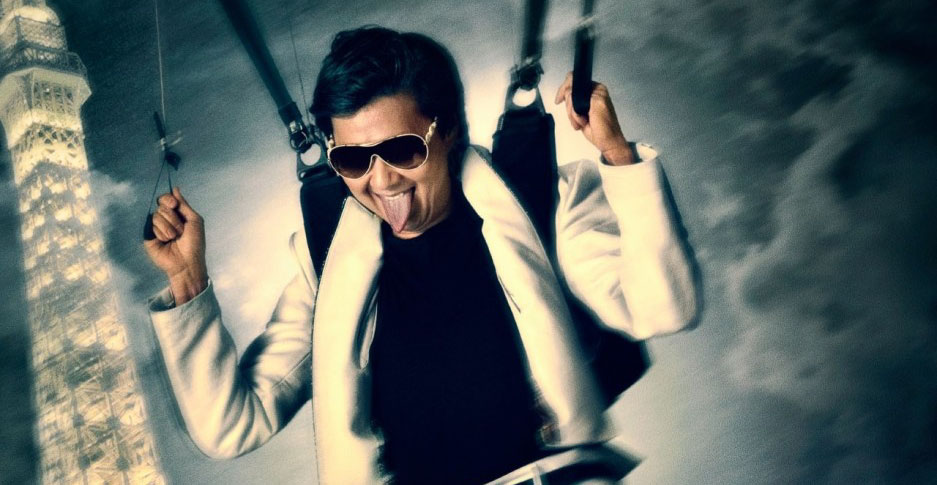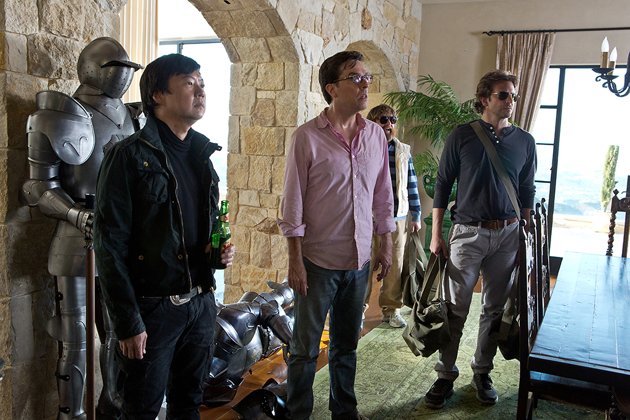|
Director
Todd Phillips
(The Hangover series, Starsky and Hutch)
said that he felt
there was freedom in making R rated movies and that it provided energy
and
aggressiveness. There has been a lot of testosterone and energy used in
the
revival of the 'man-child' films made by Judd Apatow and Phillips
recently.
Some of these are throwbacks to the raunchy comedies of the 1980s,
where
teenagers could watch raunchy, adult entertainment. When similar films
embrace
rather than critique the man-child syndrome however, they reveal how
outdated
and archaic they are because their target audiences are now older and
smarter
and deserve more.
The
bromance subgenre
could be traced back as far as any Western but today it echoes
Hollywood's
fixation on male friendships and reveals the general misogyny of the
studio
system as it hinges most of its resources on male orientated films. The
reckless stupidity associated with not all, but many of these bromance
films, amounts
simply to wasted energy, aggressiveness and chaos, still in search of
the word
adult.

In
spite of racist and
misogynist undertones, the first Hangover
movie drew appeal from the fact that its story seemed
shrouded and
mysterious, as its central characters uncovered their idiocy from the
night
before. It was about them coming to terms with their actions. If the
sequel was
a poor, laugh free cash-in, this third film challenges it to lower the
bar past
juvenile and into a new zone of painfulness.
Lame,
unfunny and
poorly made, this is not simply a question of juvenility or gender
politics, but
how far a director and producer is willing to sell-out a popular cast
and
franchise name for something that displays his own ineptitude.

Zach
Galifianakis'
opening scene, where he drives along a highway with a giraffe in the
trailer,
is an example of the attention-seeking, mean-spiritedness found in The Hangover Part III. What isn't shown in
the film's previews is that when the giraffe reaches the overpass its
head is
knocked clean off and it smashes into a windscreen, causing a pileup of
cars.
Animal
cruelty
features three times in this movie and like everything else here it's
grimly
unfunny. Who would have thought? The writing in Phillips' screenplay,
co-written
by Craig Mazin, is generally awful. The jokes aim low and still miss
and there
are three or four long, laboured transition scenes where the characters
stop to
signpost the next lurching stage of the plot through lazy expositional
dialogue. There's no mystery or actual hangover till an end credits
scenes,
which means the title is now redundant too.

The
story structure is
dull and rigid, now resembling a heist action movie as the Wolfpack
search for gold.
After the giraffe incident and the death of his father (Jeffrey
Tambor), Alan
(Galifianakis) is forced into an intervention by his Wolfpack friends
Phil
(Bradley Cooper), Stu (Ed Helms) and Doug (Justin Bartha). They prepare
to take
him to a clinic, only to be ambushed by Marshall (John Goodman) who
kidnaps
them. He reveals that Mr. Chow (Ken Jeong) has escaped from prison and
has
stolen half his gold. He wants it back and says that he will kill Doug
if they
don't comply or contact the police.
Todd
Phillips' dependability
on Galifianakis is the sum of why the film is so unfunny. No one else
is
allowed to try and be funny, unless you think a grotesquely exaggerated
Asian
stereotype counts, but then I've never liked Mr. Chow. Bradley Cooper,
after
his career defining performance in Silver
Linings Playbook, is called to do so little that Phillips seems
utterly
daft about his comedic talents. Once quirky and original, Galifianakis'
mentally
strained man-child act is now irritating and sad, with every quip line
foreseen,
which robs the jokes of their unpredictability.

If
anyone were to say
that the lack of growth in these cartoon characters is the point then
it would
be to excuse the dunderheadedness of this achingly boring and
hopefully, but
not definitely, last entry from what it is: a limp, unimaginative,
charmless,
joke-free action movie, pretending it's a comedy, and one that should
be shunted
and long forgotten.
|